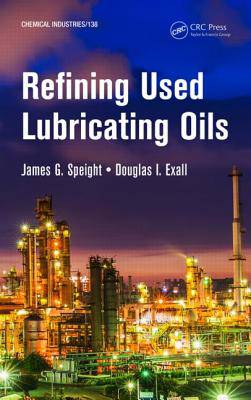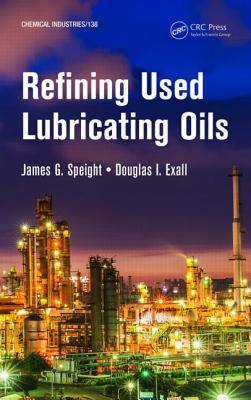
- Retrait gratuit dans votre magasin Club
- 7.000.000 titres dans notre catalogue
- Payer en toute sécurité
- Toujours un magasin près de chez vous
- Retrait gratuit dans votre magasin Club
- 7.000.0000 titres dans notre catalogue
- Payer en toute sécurité
- Toujours un magasin près de chez vous
Description
Used lubricating oil is a valuable resource. However, it must be re-refined mainly due to the accumulation of physical and chemical contaminants in the oil during service. Refining Used Lubricating Oils describes the properties of used lubricating oils and presents ways these materials can be re-refined and converted into useful lubricants as well as other products. It provides an up-to-date review of most of the processes for used lubricating oil refining that have been proposed or implemented in different parts of the world, and addresses feasibility and criteria for selecting a particular process.
The book begins with an overview of lubricating oil manufacturing, both petroleum-based and synthetic-based. It reviews the types and properties of lubricating oils and discusses the characteristics and potential of used lubricating oils. The authors describe the basic steps of used oil treatment including dehydration, distillation or solvent extraction, and finishing. They explore the combustion of used oil for use as fuel, covering chemistry and equipment, fuel oil properties, and combustion emissions. The book considers alternative processing options such as refinery processing and re-refining. It also reviews the major refining processes that have been suggested over the years for used oil. These include acid/clay, simple distillation, combinations of distillation and hydrogenation, solvent extraction, filtration, and coking processes. The book addresses economic, life cycle assessment, and other criteria for evaluating the attractiveness of an oil recycling project, examining various costs and presenting an economic evaluation method using an Excel spreadsheet that can be downloaded from the publisher's website. The book concludes with a chapter offering insights on how to choose the most suitable process technology.Spécifications
Parties prenantes
- Auteur(s) :
- Editeur:
Contenu
- Nombre de pages :
- 466
- Langue:
- Anglais
- Collection :
Caractéristiques
- EAN:
- 9781466551497
- Date de parution :
- 07-04-14
- Format:
- Livre relié
- Format numérique:
- Genaaid
- Dimensions :
- 160 mm x 236 mm
- Poids :
- 566 g

Les avis
Nous publions uniquement les avis qui respectent les conditions requises. Consultez nos conditions pour les avis.






